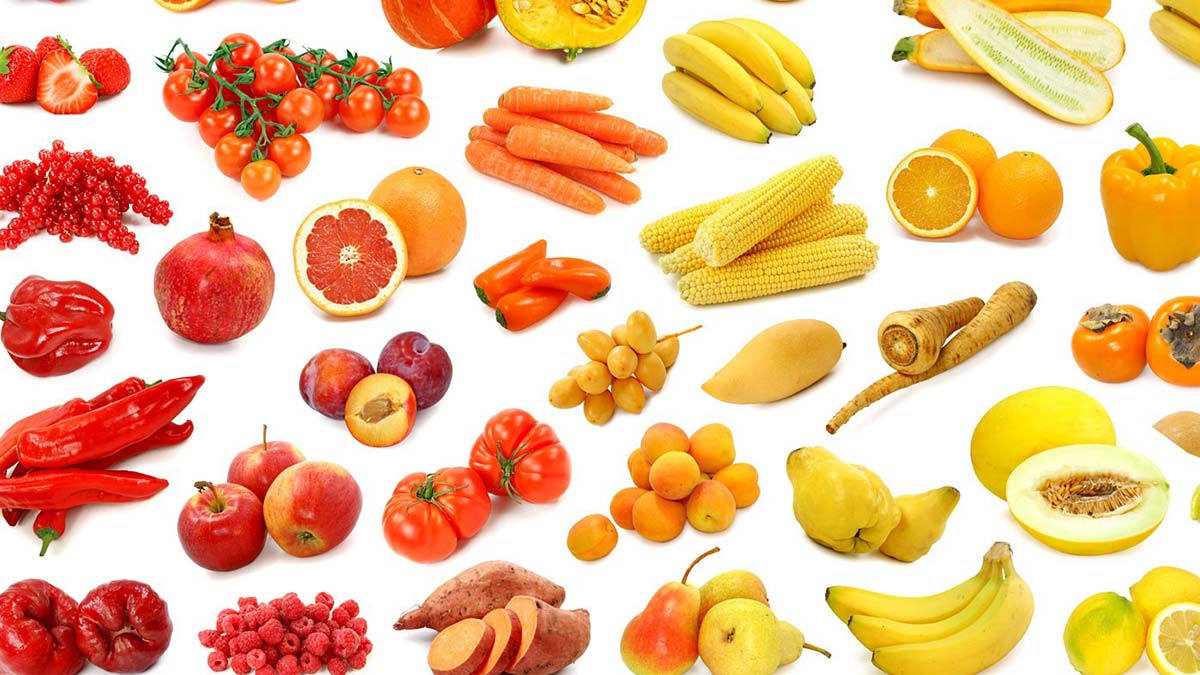Carotenoids are naturally occurring pigments with more than 600 representatives. They provide color to egg yolk, tomatoes, mushrooms, green leaves of all plants, fruits and flowers.
Carotenoids:
– are converted to vitamin A in the body;
– are efficient antioxidants;
– have strong radio protecting and anticarcinogenic effect;
– are used for coloring and enrichment of food products.
DSM is one of the leading suppliers of carotenoids. Carotenoids by DSM (beta-carotene, lutein, lycopene, zeaxanthin, et al)
Beta-Carotene (Quali-carotene)
- A safe source of vitamin A: beta-Carotene helps our body to maintain the right level of vitamin A, necessary for normal growth and development of organism, benefits eye health and vision, enhances immune system and supports skin health
- As an antioxidant, beta-Carotene protects body from harmful free radicals which increase the risk of some diseases, including cardiovascular disease
These features, together with intense color of beta-Carotene, contributed to its wide use in food and pharmaceutical industries.
Natural beta-Carotene CaroCare®
is a range of different forms of natural beta-Carotene, remarkable for simple usage, stable color and guaranteed minimum intensity of coloring.
Lutein FloraGLO® Lutein
Lutein is a yellow pigment, found in many plants, in particular in calendula.
Lutein is a structural isomer of carotenoids, synthesized by plants for coloring and absorbing light.
Out of more than 600 natural carotenoids, only lutein and zeaxanthin (and their metabolites) can be found in the macula of the retina. Their concentration in this location is higher than in any other tissue, which indicates an exceptional biological role.
Lutein is notable for its ability to absorb blue light, acting as “internal sunglasses” and reducing photochemical effect of short waves of visible light.
Consumption of lutein (with green leafy vegetables or food additives) increases macular pigment optical density (MPOD), which, in its turn, decreases the risk of age-related macular degeneration (AMD).
Recent clinical studies show that lutein also benefits skin health: provides protection for harmful effects of sunlight, increases skin hydration and elasticity.
Astaxanthin
Astaxanthin is a carotenoid with unique antioxidant function for cell membranes. An increasing number of scientific studies shows that astaxanthin benefits eye and heart health. Human body cannot generate this carotenoid and needs to extract it from natural food sources, such as salmon and seafood. A saturated red pigment of the carotenoid gives the color to salmon flesh, shrimps, crabs and other sea life.
The unique molecular structure of astaxanthin, its placement and distribution in cell membranes and lipoproteins resulted in scientific interest to this carotenoid and clinical tests, examining the benefits of astaxanthin for eye and heart health.
Astaxanthin has a unique molecular structure, that lets it to span through the double layer cell, where the carotenoid neutralizes chemically active forms of oxygen (molecules of free radicals) and prevents cell damage. Moreover, due to this location astaxanthin increases activities of other antioxidants, placed on the surface of cells’ membranes and protecting cells from oxidative damage.
Lycopene (redivivo®)
Lycopene redivivo® by DSM is a nature-identical lycopene with the highest purity level. It is available in various forms and offers superior stability, greater nutrient absorption and very low extrusion losses.
Lycopene is a red pigment, part of the carotenoids family, that can be found in plants. The richest sources of lycopene are fresh fruits and vegetables, such as watermelons, red grapefruits and tomatoes.
Lycopene is one of the 6 major carotenoids in the human blood. Our bodies cannot generate lycopene, so we can get it only with food or food additives.
Lycopene has received much attention after numerous reports that diets rich in lycopene-containing foods are associated with a reduced risk of cardiovascular disease. As one of the strongest antioxidants, lycopene helps protect our bodies from free radicals that can damage healthy cells and trigger serious diseases. A possible reason of decreasing the risk of atherosclerosis and, therefore, coronary heart disease is the prevention of oxidation of low density lipoprotein (LDL).
Lycopene is also the first line of defense against skin damage, benefiting skin health.
Zeaxanthin (OPTISHARP® (zeaxanthin))
Zeaxanthin is a structural isomer that is a part of the carotenoids family. Synthesized in plants, carotenoids give them color and help absorb light.
Of the 600 carotenoids found in nature only two – zeaxanthin and lutein – are deposited in high quantities in the retina (macula) of the eye, where their concentration is higher than in any other body tissue.
Together with lutein, zeaxanthin absorbs blue light and acts as “internal sunglasses”, reducing photochemical damages by short-wave light of visible spectrum.
Consumption of lutein and zeaxanthin with green leafy vegetables of supplements increases macular pigment optical density (MPOD), which, in its turn, decreases the chance of age-related macular degeneration (AMD).




